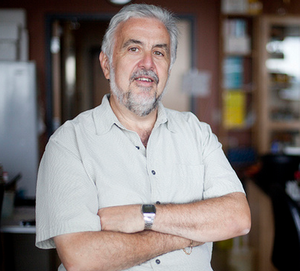In a free public seminar at 3:30 PM on September 11, in room 1115 of the Wisconsin Energy Institute, UW–Madison professor of bacteriology and Great Lakes Bioenergy Research Center (GLBRC) director Tim Donohue will present a talk on the past and future of GLBRC research.

The Bioenergy Research Center (BRC) program at the U.S. Department of Energy was established in 2007 to address one of this country’s greatest challenges – developing sustainable alternatives to the fuels and chemicals currently derived from petroleum. BRCs, including the Great Lakes Bioenergy Research Center (GLBRC) based at UW-Madison, are thus charged with making the basic science advances needed to produce fuels and chemicals from biomass and to add non-edible, lignocellulosic plant material to the nation’s energy supply chain. Research activities include increasing biomass yield, improving plant feedstocks, optimizing biomass deconstruction for cost-effectiveness, and engineering microbes to maximize biomass conversion.
With a renewal of the BRC program for another five years, GLBRC scientists and recently recruited experts will conduct research that enables the sustainable production of specialty biofuels and bio-products using dedicated bioenergy crops such as switchgrass, poplar trees and sorghum. These bioenergy crops will be grown on marginal – or non-agricultural – land, a shift from GLBRC’s previous mission of producing biofuels from crops grown on agricultural land.
